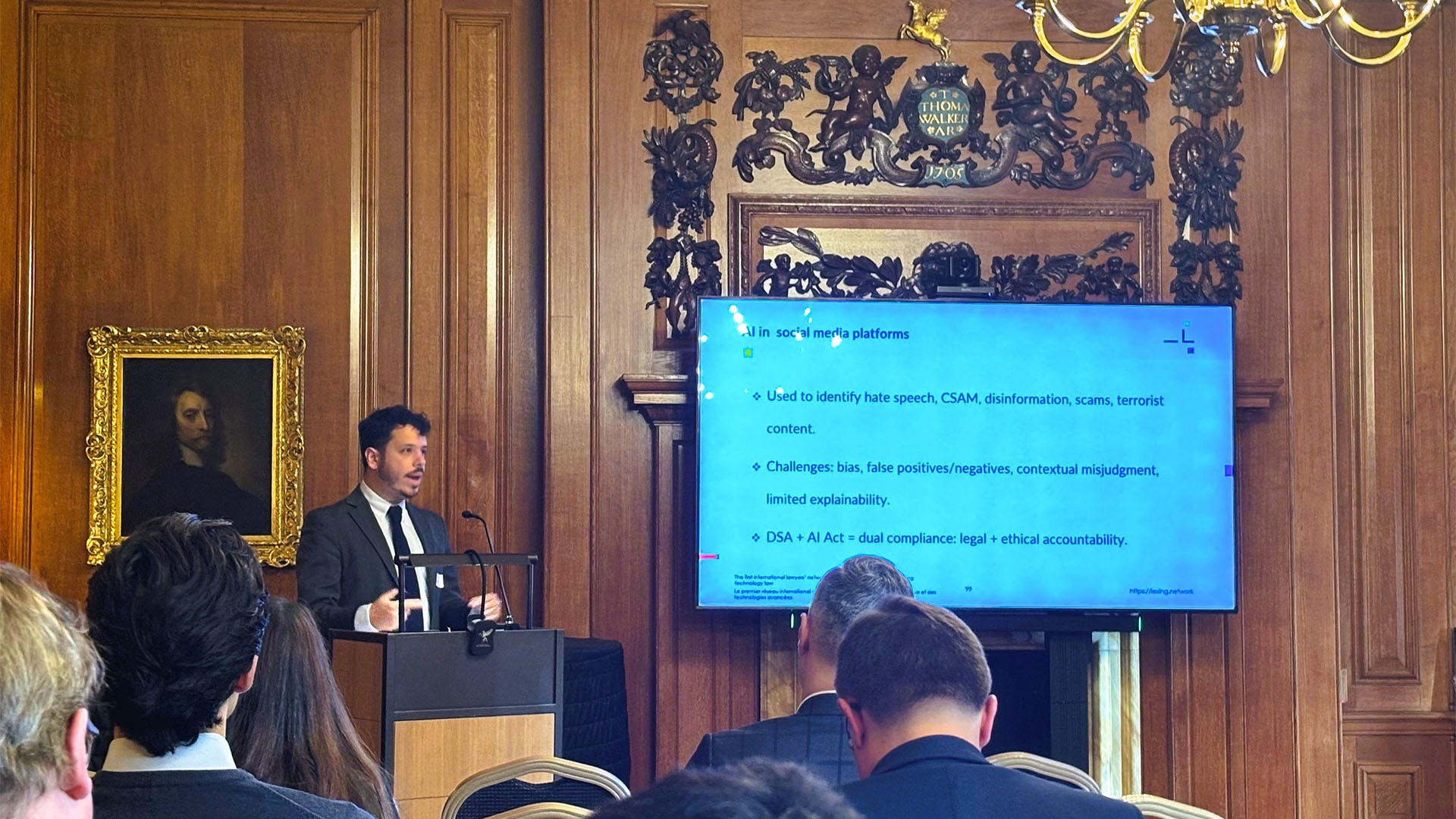Following the financial crisis of 2009, the impact of the COVID-19 outbreak on the economy of Member States has called once again for a centralized action of the European Commission under the framework of State Aid rules. While national governments adopt measures aiming to limit the further spread of the virus, undertakings are facing a severe lack of liquidity and see their trading conditions exposed to increased financial risks. Data provided during the Commission’s public consultation suggest that the current crisis may trigger an increase in business insolvencies in Europe by up to 20%. Along the same lines, negative impacts are expected to materialize in the reduction of insurance underwriting capacity by up to 15% in general and by as much as 40% for small businesses.
Reflecting on these developments we provide in this newsletter an overview of the applicable legal framework for the assessment of State Aids (Section I), the actions taken by the EU Commission within that framework (Section II), the relevance of the other competition rules during the period of application of the COVID-19 state aid measures (Section III) and conclude in Section IV.
- The Treaty rules applicable to State Aid
As a general rule, state aid falling within the scope of Article 107(1) TFEU is considered incompatible with the internal market. Nonetheless, the Treaty provides in Article 107 (2 and 3) exceptions from that general rule. Of particular relevance to the present COVID-19 outbreak are the following provisions:
- Under Article 107(2)(b) “aid to make good the damage caused by natural disasters or exceptional occurrences shall be compatible with the internal market”,
- Under Article 107(3)(b) “aid to promote the execution of an important project of common European interest or to remedy a serious disturbance in the economy of a Member State may be considered to be compatible with the internal market”.
- Under Article 107(3)(c) aid to facilitate the development of certain economic activities or of certain economic areas, where such aid does not adversely affect trading conditions to an extent contrary to the common interest may be considered to be compatible with the internal market”.
Finally, state aid measures need to be notified by the Member States regardless of the category under which they fall [Article 107(2) or (3)] and the competence for deciding on the compatibility of state aid measures lies with the EU Commission.
- The New Temporary Framework (TF COVID-19)
Given the limited size of the EU budget, the EU Commission has decided that the main response to the economic impact of the coronavirus outbreak will come from Member States' national budgets. To facilitate coordination and ensure compliance with State Aid rules, the Commission adopted on 19 March 2020 the TF COVID-19, in which it sets out its interpretation on the application of the State Aid rules for measures adopted be Member States to support the undertakings during the COVID-19 crisis period. According to the Commission’s Communication, as revised by the Amendment to the TF COVID-19 adopted on 3 April 2020, the Member States have the following options for providing aid to undertakings:
- Liquidity & Finance Measures
- Article 107(3)(b)
Within the framework of Article 107(3)(b) the Commission has enabled Member States to provide for a limited period the following five types of aid:
- Direct grants, selective tax advantages and advance payments:
Member States will be able to set up schemes to grant up to €800,000 to a company to address its urgent liquidity needs, provided that the total nominal value of all measures adopted under Article 107(3)(b) remains below the overall cap of EUR 800 000 per undertaking, all figures used being gross.
- State guarantees for loans taken by companies from banks:
Member States will be able to provide State guarantees to ensure banks keep providing loans to the customers who need them.
- Subsidised public loans to companies:
Member States will be able to grant loans with favourable interest rates to companies. These loans can help businesses cover immediate working capital and investment needs.
- Safeguards for banks that channel State aid to the real economy:
Some Member States plan to build on banks' existing lending capacities, and use them as a channel for support to businesses – in particular to small and medium-sized companies. The Framework makes clear that such aid is considered as direct aid to the banks' customers, not to the banks themselves, and gives guidance on how to ensure minimal distortion of competition between banks.
- Short-term export credit insurance:
All commercial and political risks associated with exports to the countries listed in the Annex to STEC are considered as temporarily non-marketable until 31 December 2020. In that regard, it is noted that on 27 of March 2020 the Commission temporarily removed all countries from the list of “marketable risk" countries under the Short-term export-credit Communication, enabling so Member States to make available public short-term export credit insurance.
- Article 107(2)(b)
According to the Commission the COVID-19 outbreak qualifies as an “exceptional occurrence”, enabling thus Member States to provide aid on the basis of Article 107(2)(b). In particular, Member States can:
- compensate undertakings in sectors that have been particularly hit by the outbreak (e.g. transport, tourism, culture, hospitality and retail) and/or organisers of cancelled events for damages suffered due to and directly caused by the outbreak.
- grand aid to banks to compensate for direct damage suffered as a result of the COVID-19 outbreak, which does not have the objective to preserve or restore the viability, liquidity or solvency of an institution or entity and in which case such aid will not be qualified as extraordinary public financial support under the Directive 2014/59/EU of the European Parliament and of the Council (the BRRD) nor under the Regulation 806/2014 of the European Parliament and of the Council (the SRM Regulation), and would also not be assessed under the State aid rules applicable to the banking sector.
- compensate the damages directly caused by the COVID-19 outbreak to undertakings that have received aid under the Rescue and Restructuring Guidelines, in which case the principle of “one time last time” will not apply.
- Article 107(3)(c)
In relation to liquidity and financial issues, Member States can adopt on the basis of Article 107(3)(c) TFEU the following measures:
- Rescue and Restructuring Aid
As further specified in the Rescue and Restructuring State aid Guidelines, Member States can notify to the Commission aid schemes to meet acute liquidity needs and support undertakings facing financial difficulties, also due to or aggravated by the COVID-19 outbreak
- Deferral of tax payments and/or suspensions of social security contributions
To further reduce the liquidity constraints on companies due to the coronavirus crisis and to preserve employment, Member States can grant targeted deferrals of payment of taxes and of social security contributions in those sectors, regions or for types of companies that are hit the hardest by the outbreak.
- Economic Development Measures
Apart from providing aid for the rescue or restructuring of undertakings, Member States can also adopt on the basis of Article 107(3)(c), the following measures aiming at the development of certain economic activities or of certain economic areas:
- Coronavirus related research and development (R&D)
To address the current health crisis Member State can grant aid in the form of direct grants, repayable advances or tax advantages for coronavirus and other relevant antiviral R&D. A bonus may be granted for cross-border cooperation projects between Member States.
- Construction and upscaling of testing facilities
Member States can grant aid in the form of direct grants, tax advantages, repayable advances and no-loss guarantees to support investments enabling the construction or upscaling of infrastructures needed to develop and test products useful to tackle the coronavirus outbreak, up to first industrial deployment.
- Production of products relevant to tackle the coronavirus outbreak
Member States can grant aid in the form of direct grants, tax advantages, repayable advances and no-loss guarantees to support investments enabling the rapid production of coronavirus-relevant products.
- Targeted support in the form of wage subsidies for employees
To help limit the impact of the coronavirus crisis on workers, Member States can contribute to the wage costs of those companies in sectors or regions that have suffered most from the coronavirus outbreak, and would otherwise have had to lay off personnel.
The Temporary Framework sets out specific compatibility conditions for each type of aid and enables Member States to combine all support measures with each other, except for loans and guarantees for the same loan and exceeding the thresholds foreseen by the TF COVID-19. Furthermore, the above temporary measures established in the TF COVID-19 apply in addition to the existing framework governing State Aid. Thus, Member States remain free to adopt also supporting measures falling within the scope of de minimis aid and/or the General Block Exemption Regulation. Measures compliant with the latter rules may be put in place by Member States immediately without the Commission's involvement.
Finally, along with the economic measures adopted under the State Aid rules, the Commission is taking action also in other policy areas as shown in the graph below:

- The Non-Quarantine status of Competition Law
While State Aid measures may remedy issues related to liquidity, other effects of the COVID-19 outbreak, such as disruptions in supply and demand, absence of employees from workplace and the negative impact on consumer confidence may still remain present. Against this background, undertakings can receive support provided through state resources, but at the same time they are also called to cope with these issues while remaining under an obligation to respect the competition rules and abstain from any anticompetitive practices.
- Co-operation Agreements under Article 101 TFEU
Although the unlawful character of “by object” restrictions, such as price fixing, market sharing, or exchanging competitively sensitive information on prices, output volumes, or customers can hardly be questioned, engaging in horizontal co-operation agreements may seem tempting as a coordinated action and response to these issues. However, any such practice must still comply with the rules established under Article 101 TFEU. Of particular interest to the present COVID-19 situation seem to be the following types of horizontal agreements:
- Joint Production Agreements
Companies may enter in unilateral or reciprocal specialization agreements or in joint production agreements in accordance with the rules provided in the relevant Block Exemption Regulation.
- Commercialization Agreements
Co-operation in the selling of products through agreements related to logistics management or the methods of distribution.
- Joint Purchasing Agreements
Alliances can be made between retailers for the joint purchasing of products
- Research and Development Agreements
R&D agreements ranging from outsourcing certain R&D activities to the joint improvement of existing technologies and co-operation concerning the research, development and marketing of completely new products. For companies considering to take advantage of State Aid for R&D activities, as provided in the amended TF COVID-19, it must be recalled that such aid can only be granted if beneficiaries commit to grant non-exclusive licenses under non-discriminatory market conditions to third parties in the European Economic Area.
- Standardization Agreements
Agreements setting common technical or quality requirements for the production of products.
Although benefits may indeed arise from such agreements, they must nonetheless comply with the conditions of Article 101(3) TFEU in order to be exempted from the scope of competition rules. They must be indispensable, produce efficiency gains which are passed on to consumers and must not eliminate competition. Therefore, when considering such options firms are advised to conduct in advance a thorough study of the market conditions and the expected impact of such practices on it.
Ensuring compliance with competition rules becomes even more crucial given the limited so far acceptance of such efficiency claims by competition authorities, as well as the increased scrutiny of practices in sectors related to COVID-19. Referring to the Hellenic Competition Commission (HCC), it suffices to note that a special COVID-19 task force has been established to monitor in particular for any such anticompetitive practices. Similarly, according to the joint statement of the European Competition Network (ECN) in relation to COVID-19, “competition rules ensure a level playing field between companies. This objective remains relevant also in a period when companies and the economy as a whole suffer from crisis conditions”.
Nonetheless, as further provided in that statement: “The ECN understands that this extraordinary situation may trigger the need for companies to cooperate in order to ensure the supply and fair distribution of scarce products to all consumers. In the current circumstances, the ECN will not actively intervene against necessary and temporary measures put in place in order to avoid a shortage of supply”
- Excessive Prices under Article 102 TFEU
A final note needs to be made in relation to pricing and Article 102 TFEU. According to the ECN joint statement: “it is of utmost importance to ensure that products considered essential to protect the health of consumers in the current situation (e.g. face masks and sanitising gel) remain available at competitive prices. The ECN will therefore not hesitate to take action against companies taking advantage of the current situation by cartelising or abusing their dominant position”.
This statement comes to confirm the renewed interest shown by both the EU Commission and national competition authorities in pursuing excessing pricing cases. And it is of particular importance in the present COVID-19 occasion given the fact that all recent cases of excessive pricing relate to the pharmaceutical sector. Against this background and in light of the ongoing EU investigation into the pricing practices of Aspen, companies are advised to consider carefully their pricing strategies. At the same time dominant companies remain under an obligation to abstain not only from exploitative practices, such as excessive pricing, but also from abusive exclusionary practices.
- Conclusion
The COVID-19 outbreak has led to a serious economic disturbance with effects produced in a wide range of economic sectors. Given the magnitude of the COVID-19 impact on economy, a coordinated response requires a multidimensional approach with solutions coming both from the EU level, the Member States, or even undertakings themselves. The adoption of the TF COVID-19 from the Commission enables Member States to adopt a wide range of measures to remedy these problems. At the same time, Member States remain free to adopt measures either falling outside the scope of State Aid rules, such as national funds granted to health services or other public services to tackle the Covid-19, or wage subsidies, or adopt measures exempted from State Aid rules under the de minimis rules and the relevant Block Exemption Regulation. Against this background, undertakings are advised to seek for solutions primarily through the measures adopted by the Member States. Even during the COVID-19 period undertakings remain under an obligation to comply with competition rules and therefore any action taken must be assessed beforehand for its compatibility with these rules.
In relation to the Greek response to COVID-19, the Commission approved on 3 April 2020 a €2 billion Greek aid scheme adopted under the TF COVID-19 in the form of guarantees on loans to be issued by the Hellenic Development Bank (HDB) to financial intermediaries. The scheme enables the granting of guarantees on loans to help businesses cover immediate working capital needs and is open to all Greek undertakings with the exception of financial intermediaries, such as banks, undertakings active in aquaculture, in agriculture and in sectors non-eligible by the European Regional Development Fund.
More information on the measures adopted by the Greek Government in response to the COVID-19 outbreak, as well as relevant guidance can be found in our other newsletters:
- “Exceptional measures announced by Greek Government to support workers and enterprises due to the corona virus epidemic”
- “Further measures announced by Greek Government to support workers and enterprises due to the corona virus epidemic”
- COVID -19 and CONTRACTS
This document is only informative and not intended to provide legal advice. Please contact your preferred legal consultants for advice on the matters discussed in this document. The information in this document is intended only as a general update and should not be taken as the sole foundation for decision making.
By:
Gregory Pelecanos (Senior Partner) and
Constantine Beikos-Paschalis (Junior Associate)



